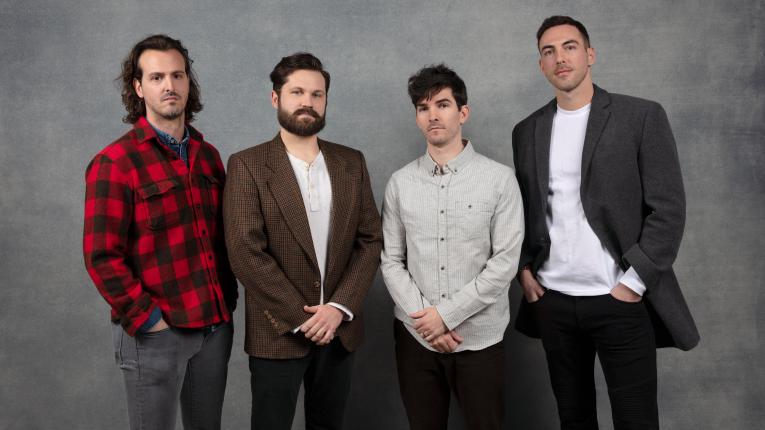
Now older and at least a little wiser - not hard in light of the shenanigans they relate - Spencer Reinhard, Warren Lipka, Eric Borsuk and Chas Allen appear on screen to prod and tweak the film’s dramatization of their 14-year-old story into shape, looking ruefully on as it’s enacted by, respectively, Keoghan, Evan Peters, Jared Abrahamson and Blake Jenner. It’s a trick that immediately puts viewers on the alert for some tongue-in-cheek narrative gymnastics, and Layton’s screenplay delivers thick and fast on that score, adopting a faux-documentary format built on conflicting perspectives - a device not unlike the one recently and contentiously used in “I, Tonya.” The key twist here, however, is that the framing narration is provided by the story’s real-life subjects. “This is not based on a true story,” reads a title card at the outset of “American Animals,” before the words “not based on” are casually wiped off the screen.

Performed with piss, vinegar and some poignancy by a fractious quartet of bright young things - with the ever-more-intriguing Barry Keoghan first among equals - Layton’s crowdpleasing Sundance competition entry is tricked out to the max with lithe structural fillips, flashes of cinematic quotation and formal sleight of hand that gradually reveals a pointed thematic purpose.

In “American Animals,” Layton brings that same preoccupation to a (mostly) narrative form for the first time, and the results are sensational: a riveting college-boy crime caper that speeds along on pure movie-movie adrenaline, before U-turning into a sobering reflection on young male privilege and entitlement.


 0 kommentar(er)
0 kommentar(er)
